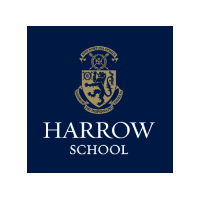A full-boarding school for boys aged 12-19, founded in 1572 under a Royal Charter granted by Elizabeth I.
We are one of just a few full-boarding, all-boys schools in the United Kingdom.
Through the full-boarding model, we are able to use the whole day productively: the timings of games and lessons change with the seasons and the available light; groups and societies meet after prep and at weekends; and extra subjects find room around the timetable. Although we never pretend that single-sex schooling is the only way to educate someone, it does help to prolong childhood in a very healthy way, enabling children to express themselves intellectually, emotionally and creatively without feeling self-conscious. Our rare full-boarding, all-boys environment is key to what makes Harrow, Harrow.
As a steward of many cherished traditions, today’s Harrow is shaped by the best of its past.
Harrow was founded in 1572 under a royal charter from Queen Elizabeth I by local landowning farmer, John Lyon. It soon became one of the greatest schools in the country, attracting pupils from all over the world. This distinguished history enriches the daily life of our entire community. From the boys’ distinctive dress and the carving of their names onto boards in the Houses, to our own unusual form of football, archaic slang and the communal singing of Harrow Songs, these customs develop a strong corporate spirit and a sense of belonging to something bigger than oneself.
Visitors are often astonished to find such a substantial estate so close to London.
Harrow’s 324 acres comprise six conservation areas, a registered park, a nine-hole golf course and even a working farm. Coupled with its buildings of special architectural and historic interest, the School has the quality of a village. Positioned as we are on the Metropolitan Line, 20 minutes from Baker Street on a fast train, we enjoy the best of both worlds – a spacious boarding community within easy reach of the vibrancy of the capital.
Harrovians have diverse background and abilities.
No two Harrovians are the same: some live in London, others much further afield in the UK or overseas; a number come from established Harrow families, others have no experience of public schooling; many excel in sport or the arts, others are very strong academically. Whatever they bring to the Hill, all come together on an equal footing, to be judged by their contribution alone. In this environment, individuals flourish, learn from each other and build relationships that last.
Harrow has produced many great men, whom we call the Giants of Old.
Famous Old Harrovians include statesmen such as Peel, Palmerston, Churchill, Nehru and King Hussein of Jordan; writers including Byron, Sheridan, Trollope and Richard Curtis; Anthony Ashley-Cooper, the seventh Earl of Shaftesbury and influential social reformer; Lord Rayleigh, the physicist and Nobel prize-winner; Fox Talbot, the inventor of photography; the archaeologist Sir Arthur Evans and James Bruce the explorer; Admiral Rodney and Field Marshal Alexander; and 19 winners of the Victoria Cross. More recently, many pupils have gone on to distinguished careers in business, the law, medicine, the armed forces, the arts and the media. Recalling how great men have walked the same streets, sat in the same form rooms and lived in the same Houses is motivating and empowering for every boy at the School.
Our "School on the Hill" has a global presence.
Harrow School is the founding member of the Harrow Family of Schools, which also includes John Lyon School, Harrow School Online, and the multiple Harrow International Schools, Harrow Innovation Leadership Academies and Harrow Little Lions (Early Years Centres) in operation around the world. Harrow’s own diverse pupil body means that a boy from London or Yorkshire or the Scottish Highlands may become a close friend of someone who lives in the USA, South Africa or South Korea. Our old boy organisation, the Harrow Association, has a membership of approximately 9,000 Old Harrovians, who are dispersed around the world. The HA's over 20 active clubs, thriving events diary, and extensive careers guidance and work placement programme are testament to an OH’s loyalty to his peers and the School – be they 18 or 80, Old Harrovians will often gather to socialise and sing Harrow Songs.

